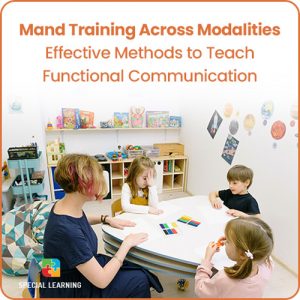Developmental Doctors
Does My Child Need to See a Developmental Doctor?
A developmental doctor, usually a pediatrician, has special training in the area of child development. Developmental doctors specialize in diagnosing and dealing with developmental issues in children. They focus on child development and child behavior issues and how these affect learning. Developmental doctors often assess children with issues like autism spectrum disorder (ASD or autism), attention deficit hyperactivity disorder (ADHD), and other learning disabilities.
Unlike a pediatrician who has limited training in child development disorders, a developmental doctor has to complete a behavioral training program and must pass an exam. In addition, developmental doctors are required to take continuing education credits, in order to stay current on developmental issues.
Should Your Child See a Developmental Doctor?
If your child has autism, or you suspect that your child has autism, consider making an appointment with a developmental doctor. Developmental doctors can diagnose many different developmental disorders. In addition to diagnosing these disorders, they can also evaluate your child’s overall development and progress. These doctors can also devise a treatment plan, in order to address any developmental delays and issues and to ensure that your child will continue to make developmental and educational progress despite any disabilities or conditions that they may have.
Another Advocate for Your Child
One of the best things about having a developmental doctor involved in your child’s health care team is that such doctors can help coordinate medical evaluations or suggest appropriate evaluations, as necessary. For example, a developmental doctor may feel that your child should see a pediatric neurologist, in order to rule out any comorbid conditions that might be affecting your child’s autism.
A developmental doctor can also prescribe medication, if needed, to deal with certain conditions. In addition, a developmental doctor can be a great advocate for your child. They can help during school planning sessions, as well as provide the necessary documentation needed for your child to receive services and therapy from other medical professionals.
A developmental doctor can provide long-term support for your child — from infancy through young adulthood — and can also help manage behavioral and medical concerns. Developmental doctors often end up acting as care coordinators and assisting parents in navigating through the medical and educational communities, in order to develop an appropriate care plan for their children.
What to Expect During an Evaluation
You can expect to spend anywhere from one hour to several hours with a developmental doctor during your first session. During this session, the developmental doctor will ask you different questions about your child. She will also examine your child. After the session is complete, a developmental doctor will send you a lengthy report that will include appropriate diagnoses and a treatment plan. A developmental doctor may also recommend that you take your child to other developmental specialists like a pediatric neurologist or child psychiatrist.
Reference:
Bertin, Mark MD, Developmental-Behavioral Pediatrics, retrieved on March 31, 2011, from
http://www.developmentaldoctor.com
Copyright © by Special Learning Inc. All right reserved.
No part of this article may be reproduced in any manner whatsoever without written permission except in the case of brief quotations embodied in critical articles and reviews. For information, contact Special Learning Inc., at: contact@special-learning.com








